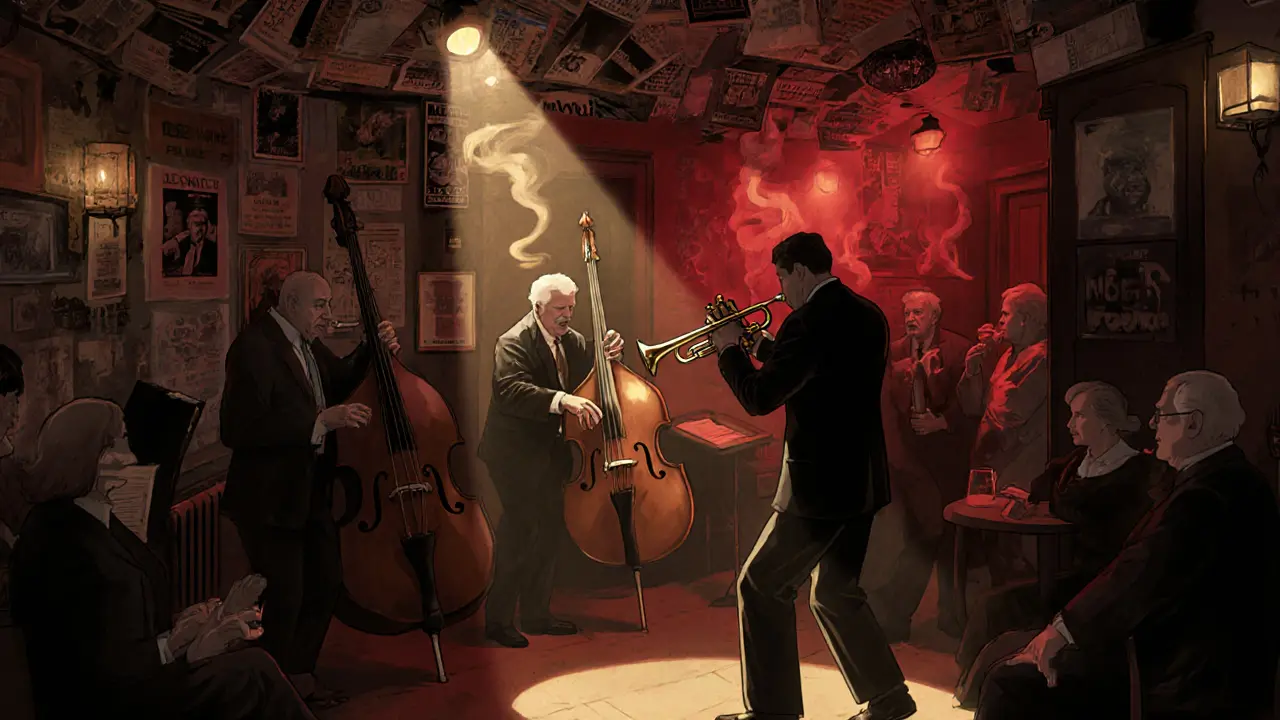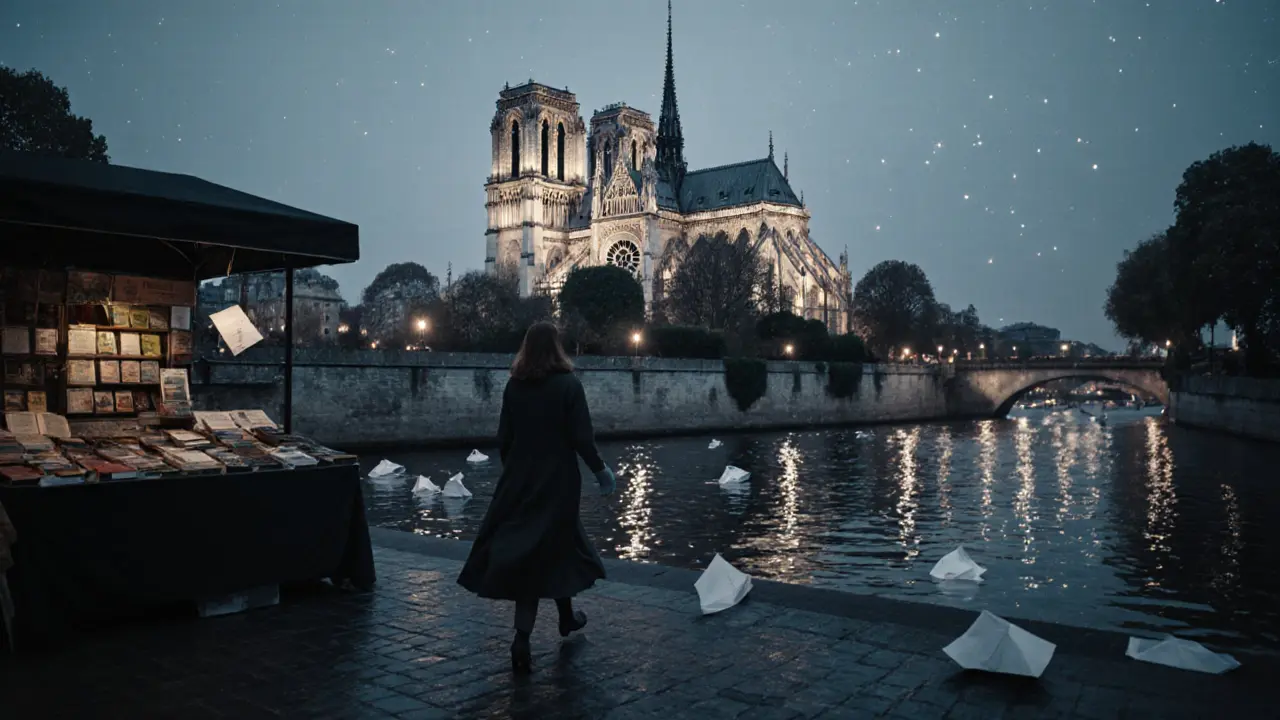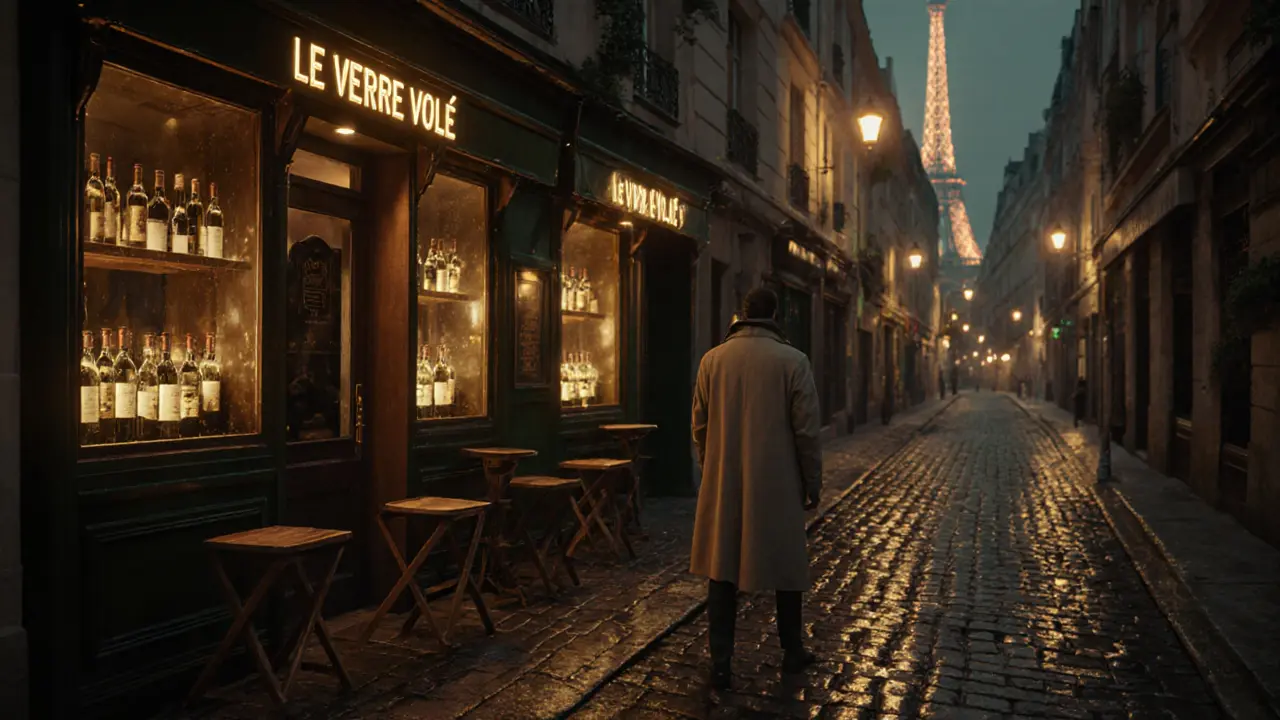Paris doesn’t sleep when the sun goes down. While the Eiffel Tower sparkles and the Seine reflects golden streetlights, the city transforms into something quieter, wilder, and more intimate. This isn’t just about drinking and dancing-it’s about strolling through lit-up alleyways, sipping wine in hidden courtyards, or dancing to live jazz in a basement that’s been around since the 1950s. If you think Paris is all about cafés and museums by day, you’re missing half the story.
Where to Start: The Heart of Parisian Nightlife
The best nights in Paris begin in the 1st, 9th, or 11th arrondissements. Le Marais, around Rue des Rosiers and Rue des Archives, is where locals go after dinner. It’s not packed with tourist traps-it’s full of small wine bars with wooden stools, bottles lined up behind the counter, and a no-frills vibe. Try Le Verre Volé for natural wines poured by people who actually know what they’re serving. No menus, just recommendations. Ask for something from the Loire Valley or a skin-contact white from the Jura.
Just a few blocks away, in the 9th, you’ll find Le Comptoir Général. It’s not a bar. It’s an experience. A converted warehouse with vintage furniture, live African music, and a garden full of fairy lights. You might end up chatting with a French filmmaker, a Brazilian drummer, or a retired librarian from Lyon. No one rushes you. No one pushes drinks. You just stay until you’re ready to leave.
Clubs That Actually Feel Like Paris
If you’re looking for clubs, skip the ones near Champs-Élysées. They’re loud, expensive, and full of people who think they’re in Ibiza. The real Parisian clubs are tucked away, often in old industrial buildings or beneath bookstores.
Concrete in the 13th arrondissement is one of the city’s most respected spots. It opened in 2015 and still feels like a secret. The sound system is built for deep techno, not pop remixes. The crowd? Mostly locals in dark coats and boots. No VIP sections. No cover charge before midnight. You walk in, grab a beer from the self-serve tap, and let the bass pull you into the night.
For something more eclectic, head to La Cigale in the 18th. It’s not a club-it’s a concert hall that turns into a dance floor after 11 PM. You’ll find indie rock bands from Montreal, French electro-pop acts, and even the occasional flamenco fusion group. The walls are painted with murals from the 1920s, and the balcony seats are still original. It’s the kind of place where you’ll hear a song you’ve never heard before and realize you’ll be playing it on repeat for weeks.
Live Music You Won’t Find in Tourist Brochures
Paris has one of the most vibrant live jazz scenes in Europe-and most of it happens in places you won’t find on Google Maps. In the 6th arrondissement, Le Caveau de la Huchette has been playing hot jazz since 1946. The band doesn’t take breaks. They play until 4 AM. The room is small, the air is thick with cigarette smoke (yes, it’s still allowed in some places), and the dancers? They’re mostly French retirees who’ve been coming here for 50 years.
Down in the 10th, Le Petit Journal Montparnasse hosts blues and soul nights on Fridays. The singer? She’s from New Orleans but moved to Paris in 2012. The crowd? Mix of expats, students, and a few elderly men who sit in the same corner every week with a glass of red wine. You won’t find a cover charge until 10 PM. Before that, it’s just a cozy bar with a piano and a woman who sings like she’s telling you a secret.

Bars That Are More Than Just Drinks
Some bars in Paris don’t just serve drinks-they serve stories. In the 11th, Bar de la Marine is a tiny spot behind a fish market. The owner, Jean-Luc, used to be a sailor. He still has his old logbook behind the counter. He’ll ask you where you’re from, then pull out a bottle of absinthe he brought back from Marseille in 1987. No one charges for it. You just say thank you.
Then there’s Le Baron, a members-only club in the 8th. It’s not secret, but it’s not for everyone. You need to be invited, or know someone who knows someone. Inside, the walls are covered in art from emerging Parisian painters. The music changes every night-sometimes disco, sometimes experimental noise. The dress code? No suits. No sneakers. Just something that feels like you. It’s not about status. It’s about presence.
What to Avoid
Not every place that looks like a nightlife hotspot is worth your time. Avoid the bars around Place de la République after 11 PM-they’re crowded with drunk tourists and overpriced cocktails. Skip the clubs that advertise "Parisian nightlife experience" on Instagram. They’re usually run by foreign promoters who don’t even speak French.
Don’t go to Montmartre for nightlife unless you want to pay €15 for a glass of wine and be surrounded by street musicians playing "La Vie en Rose" for the 500th time that night. It’s charming in daylight. At night? It’s a stage show.
And if you’re looking for a late-night snack, don’t go to the kebab shops near the Metro. The best post-club bite in Paris is a warm croissant from Stohrer on Rue Montorgueil. Open until 2 AM on weekends. They’ve been making pastries since 1730. You’ll eat it standing up, butter dripping on your coat, and you’ll think: this is why I came.

When to Go and How to Get Around
Paris nightlife peaks between 11 PM and 3 AM. Most bars open at 9 or 10 PM, but they don’t fill up until after midnight. Clubs usually don’t get going until 1 AM. Don’t rush. The rhythm here is slow.
Public transport runs until 1:45 AM on weekdays and 2:45 AM on weekends. After that, you’ll need a taxi or Uber. But here’s a tip: walk. Paris is safe at night if you stay in well-lit areas. The streets are clean, the lights are warm, and the silence between music and footsteps is part of the magic. If you’re staying near the Seine, take a midnight stroll along the quays. You’ll see couples reading, artists sketching, and the lights of Notre-Dame glowing across the water.
What You’ll Remember
You won’t remember the name of every bar. You won’t recall every song. But you’ll remember the way the air smelled after rain near Place des Vosges. You’ll remember the old man who nodded at you as you walked into Le Caveau and didn’t say a word. You’ll remember the first time you heard a French jazz trumpet and realized you didn’t need to understand the lyrics to feel it.
Paris at night isn’t about checking off a list. It’s about showing up, listening, and letting the city surprise you. No guidebook can teach you that. You have to be there. With your eyes open. And your heart ready.
Is Paris nightlife safe at night?
Yes, Paris is generally safe at night, especially in the main nightlife districts like Le Marais, Saint-Germain-des-Prés, and Montmartre. Stick to well-lit streets, avoid isolated alleys after 2 AM, and be cautious around large groups of overly drunk tourists. The metro runs until 2:45 AM on weekends, and taxis are easy to find. Most locals go out late and return home safely.
What’s the best night to go out in Paris?
Friday and Saturday nights are the busiest, but they’re also the most crowded. For a more authentic experience, try Thursday or Sunday. Many jazz clubs and underground bars have special events on Thursdays, and Sunday nights are quiet, intimate, and perfect for lingering over wine. Locals often save Sunday nights for slow endings.
Do I need to speak French to enjoy Paris nightlife?
No, but a few basic phrases go a long way. Saying "Bonjour," "Merci," and "Une bière, s’il vous plaît" will make bartenders more likely to chat with you. Many staff in popular spots speak English, but the real gems-like small wine bars or jazz cellars-are often run by people who don’t. A smile and effort matter more than fluency.
How much should I budget for a night out in Paris?
You can have a great night for €30-50. A glass of wine in a local bar costs €6-8. A cocktail in a trendy spot might be €12-15. Club entry is often free before midnight, and drinks are €8-12. Skip the tourist traps near the Eiffel Tower-prices there can double. A late-night croissant or sandwich from a boulangerie costs under €4. Plan to walk between places to save on transport.
Are there any dress codes for Paris nightclubs?
Most clubs don’t enforce strict dress codes, but Parisians dress with intention. No flip-flops, no sportswear, no oversized hoodies. Think dark jeans, a nice shirt or blouse, and clean shoes. At upscale spots like Le Baron, you’ll see more tailored looks. At Concrete or Le Comptoir Général, comfort and style matter more than fashion. When in doubt, lean toward minimalist and polished.
Can I find vegan or vegetarian options in Paris nightlife spots?
Yes. Many bars now offer vegan snacks-think roasted chickpeas, beetroot hummus, or plant-based charcuterie boards. Places like Le Comptoir Général and Le Baron have dedicated vegan menus. Even traditional bistros like L’Avant Comptoir serve vegetable tartines and lentil salads. Ask for "plats végétariens" or "sans viande." You’ll be surprised how common it is now.
